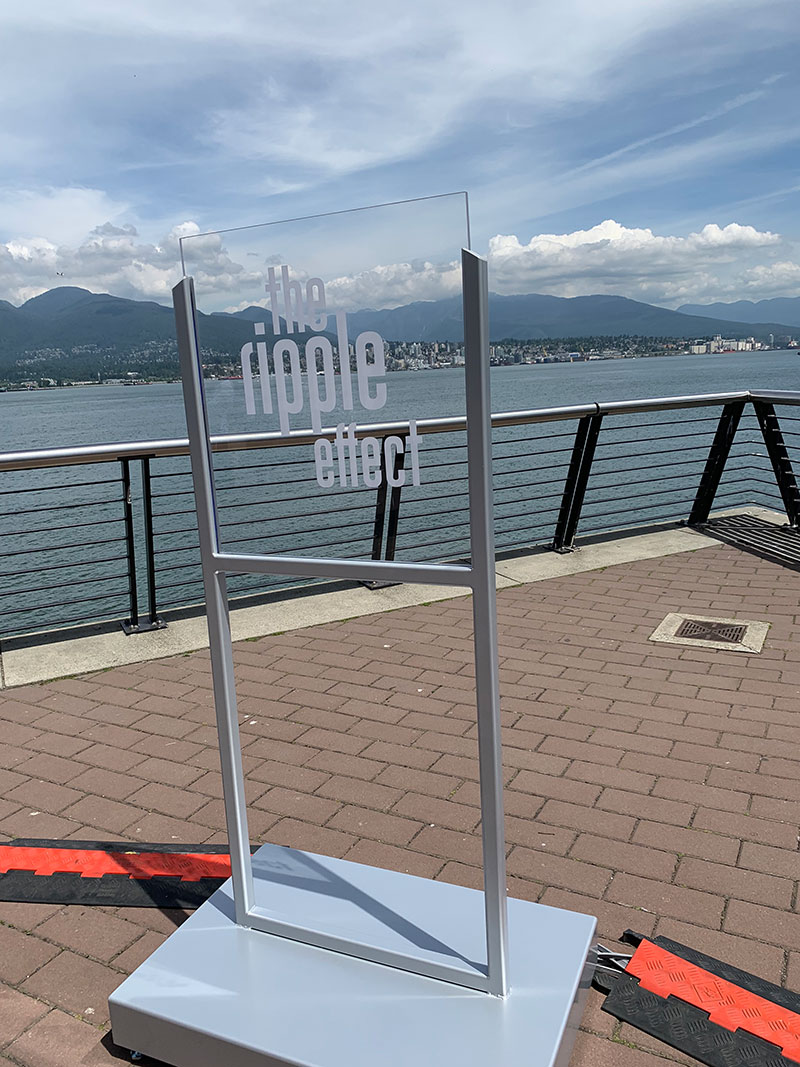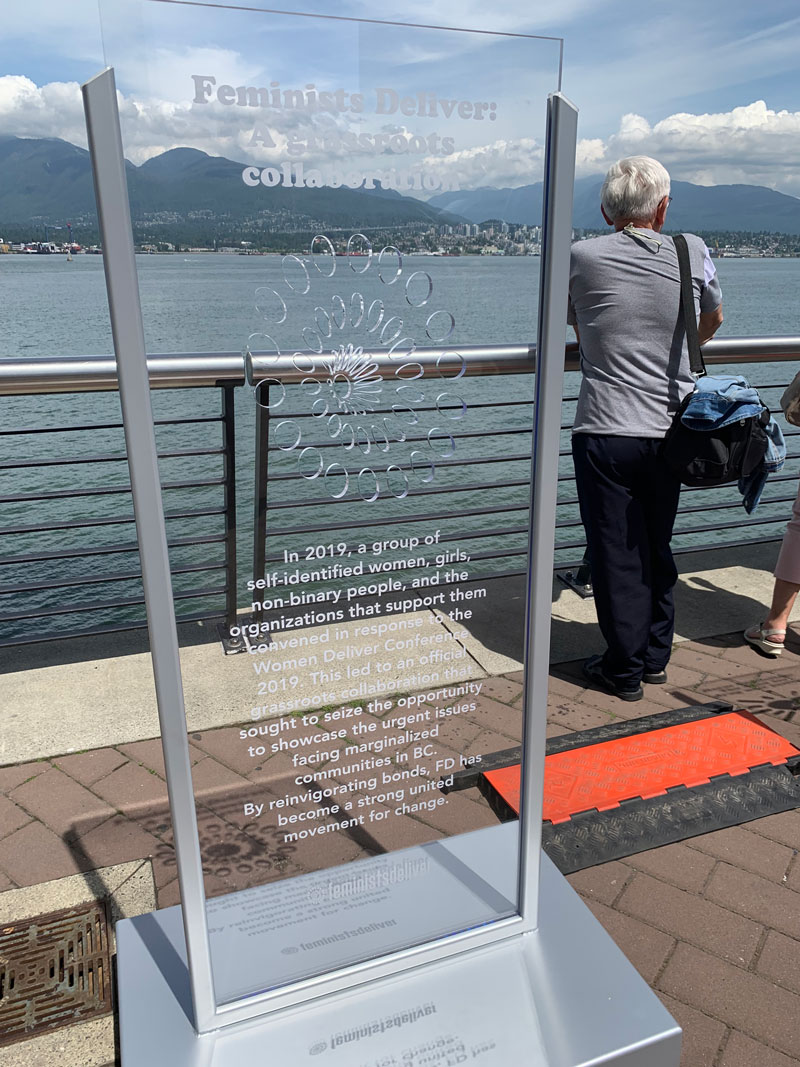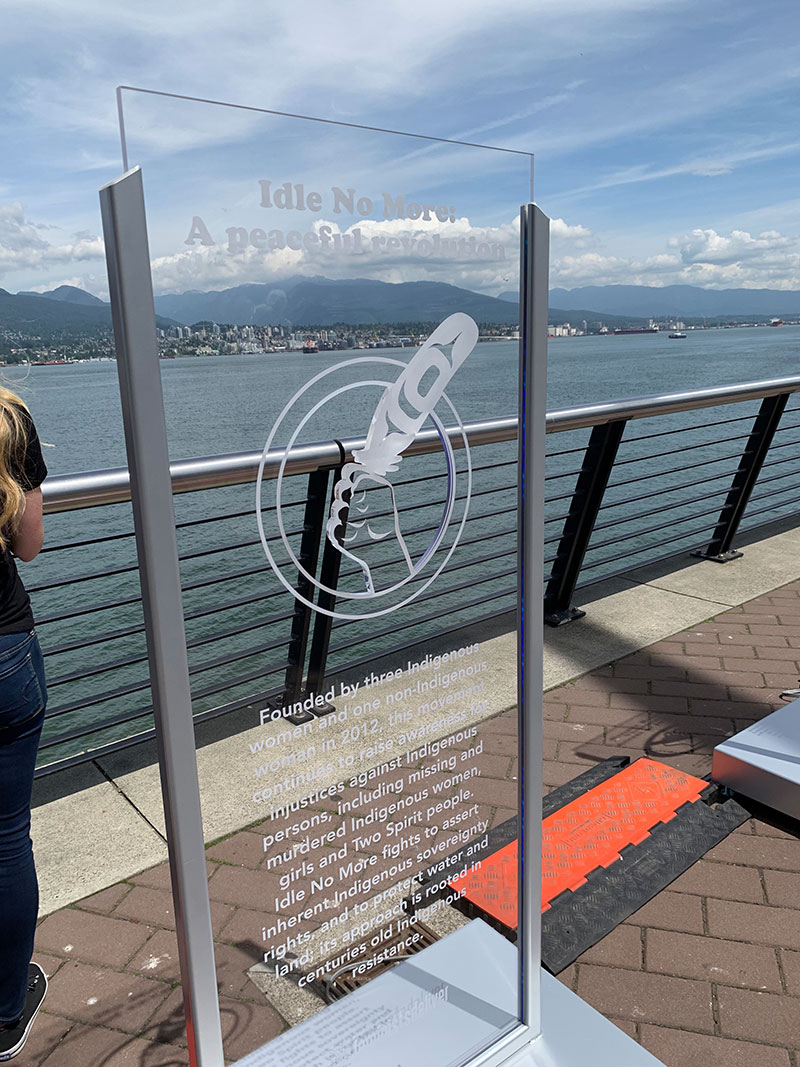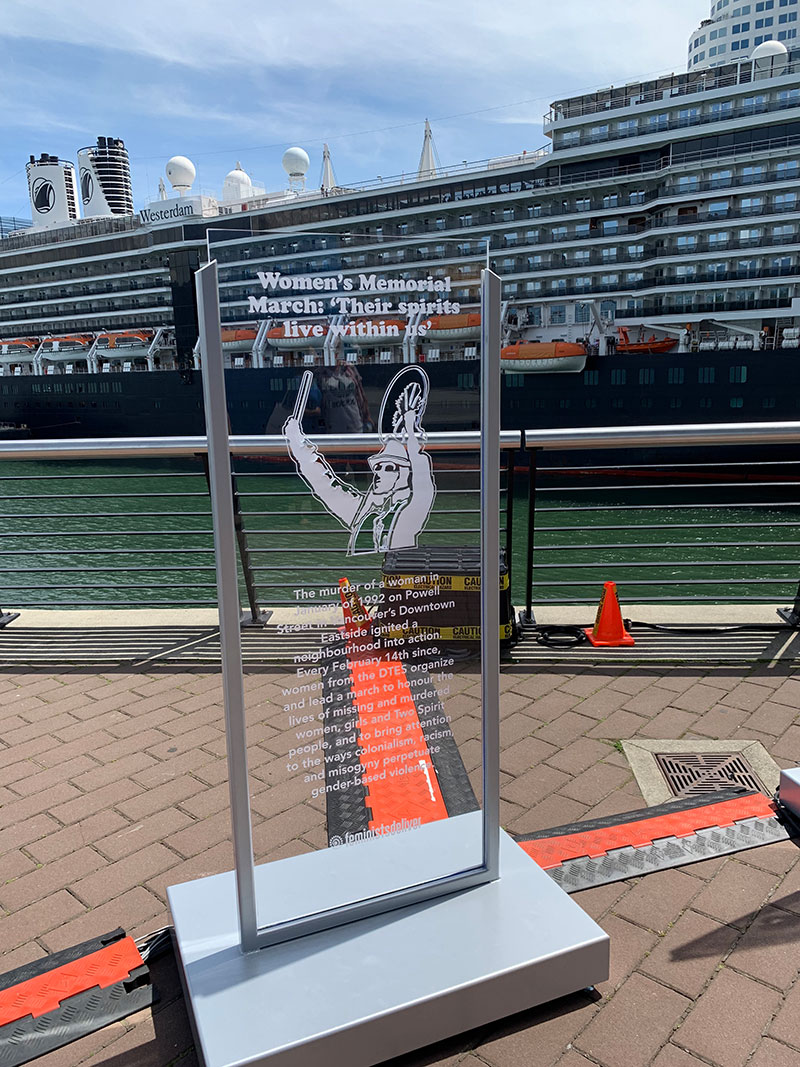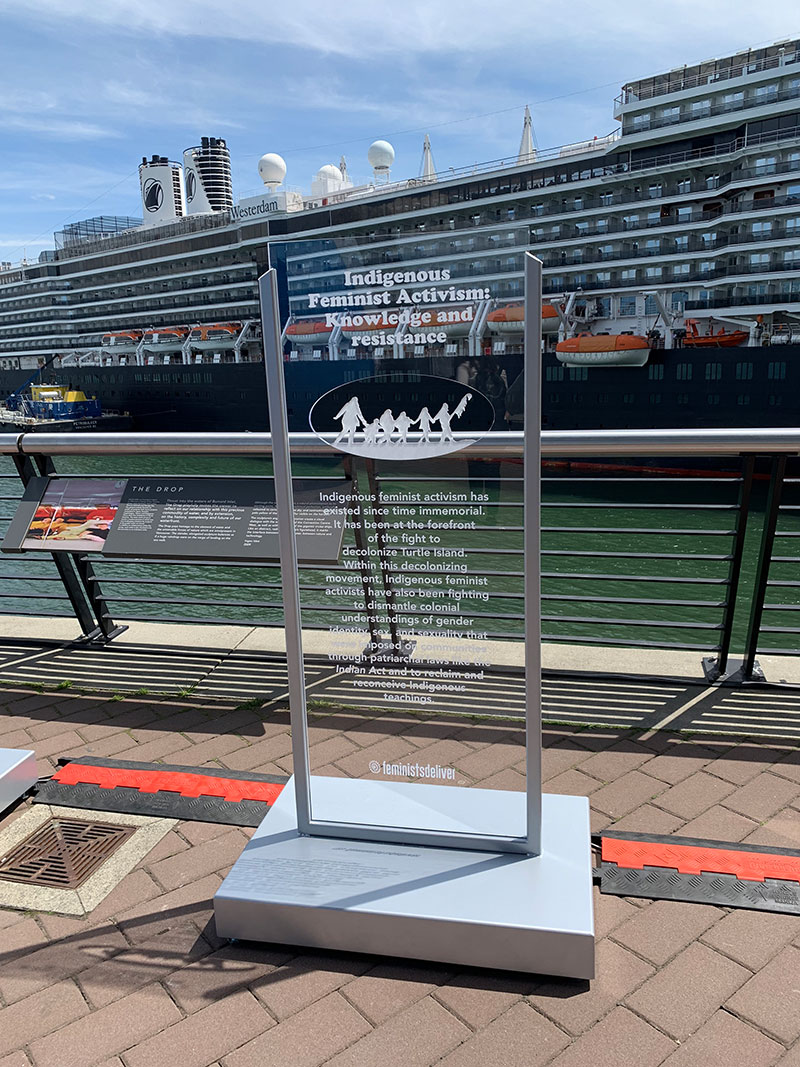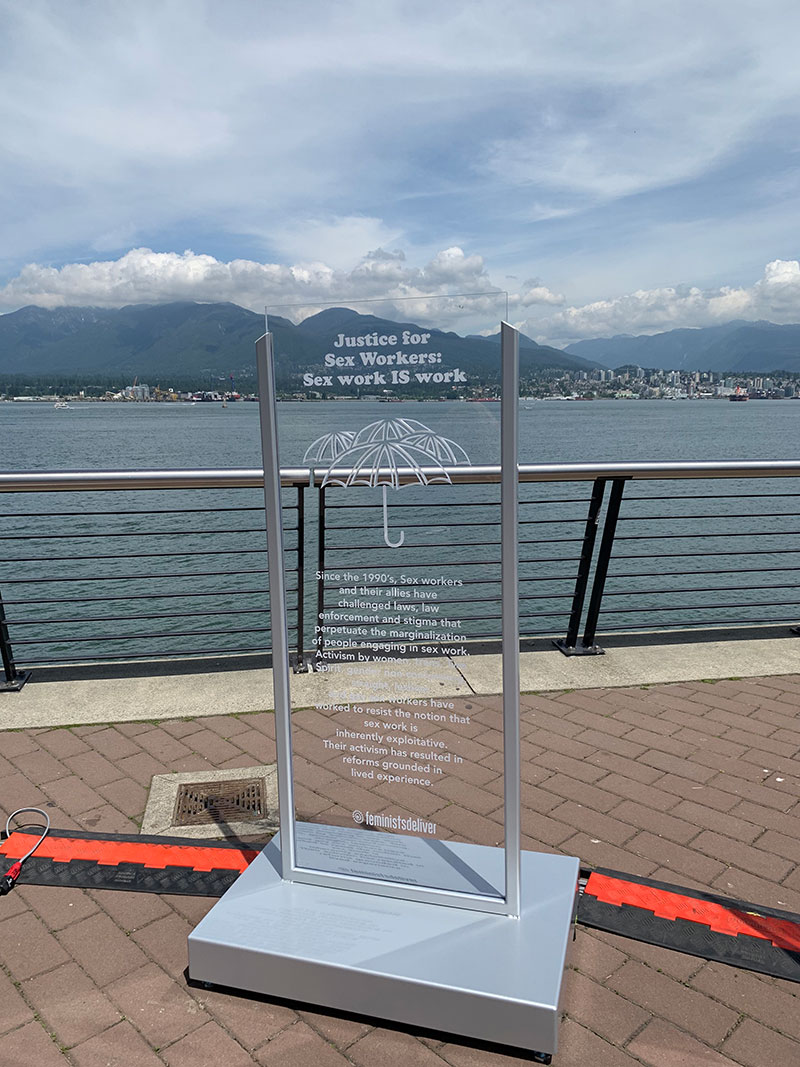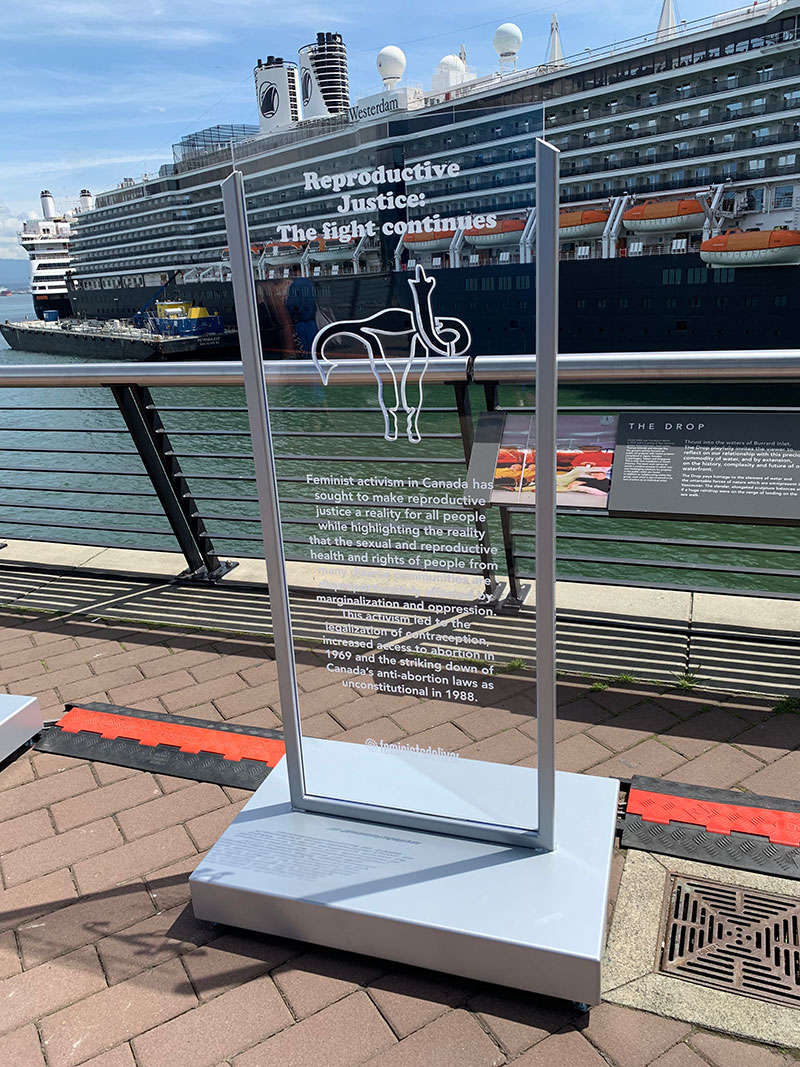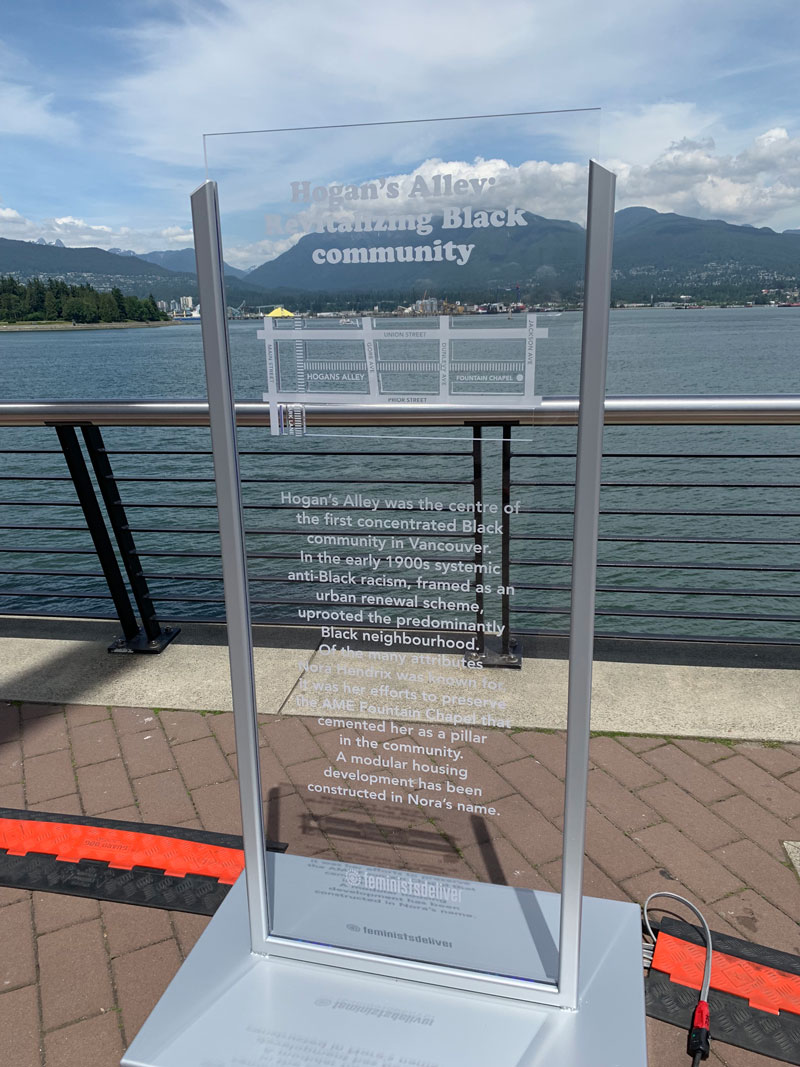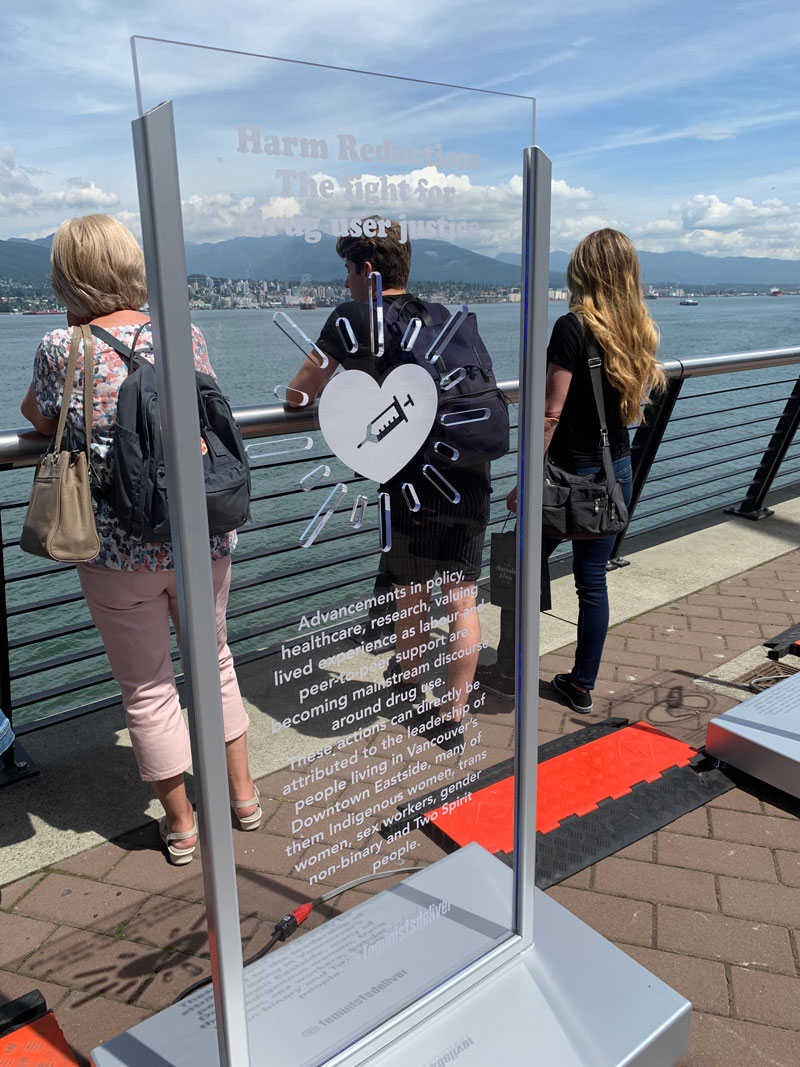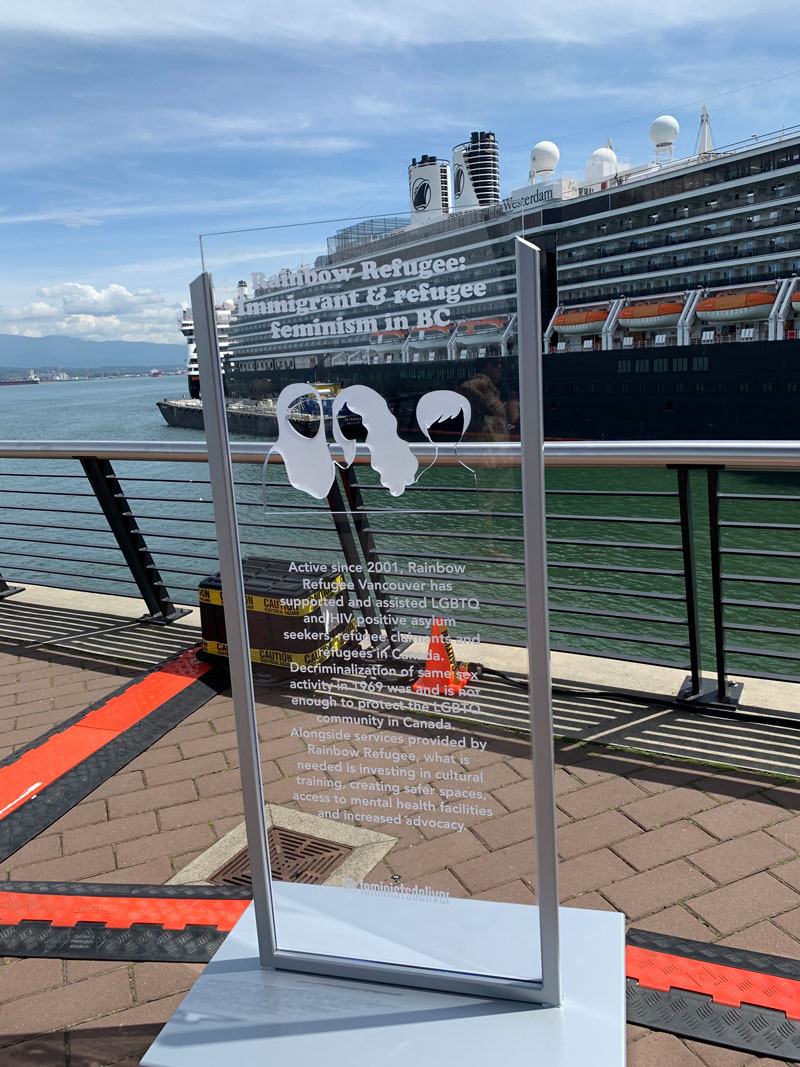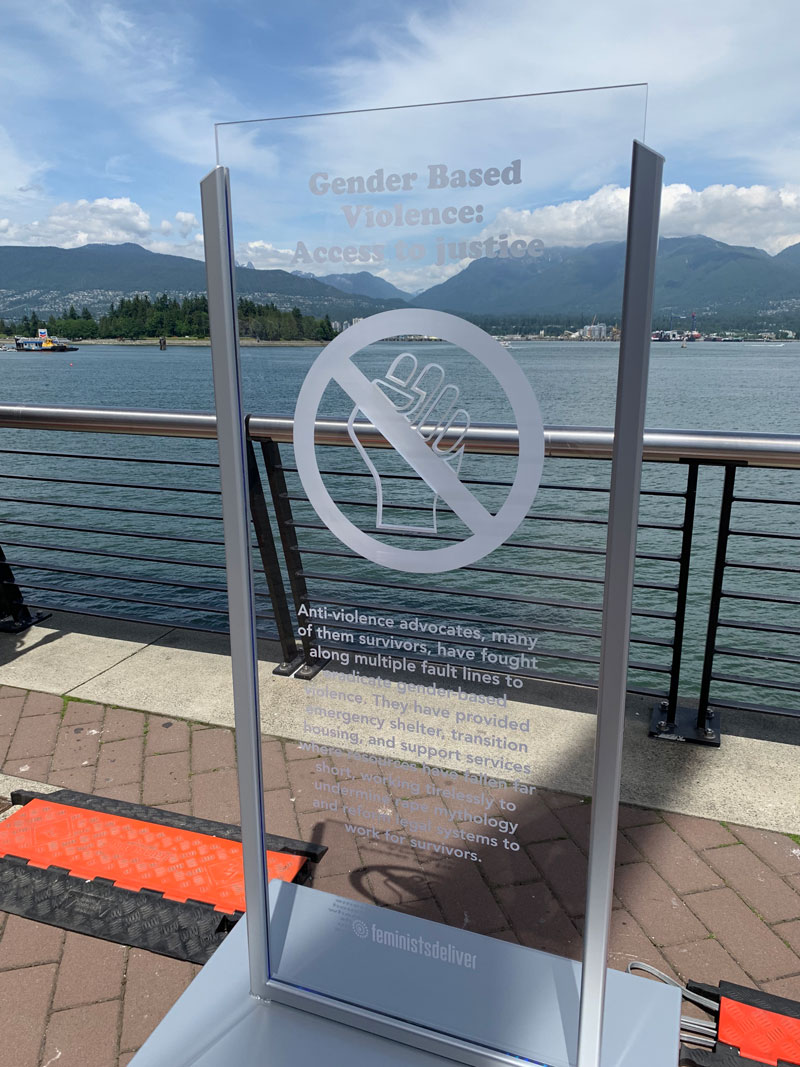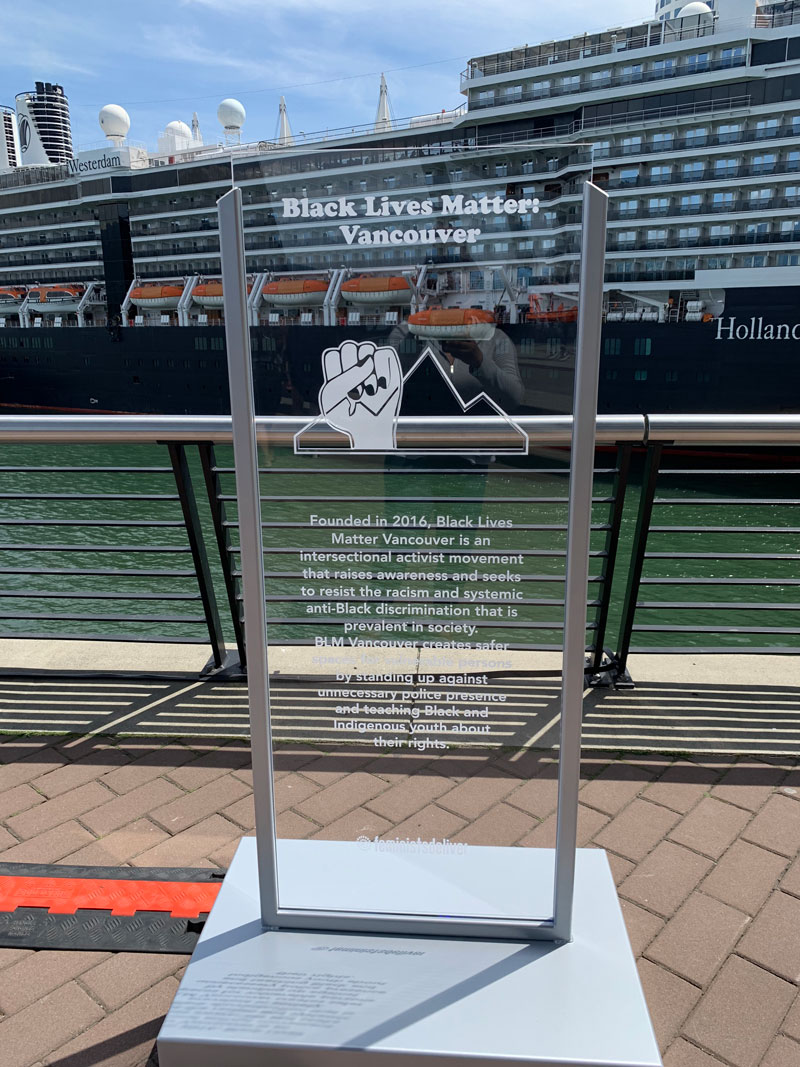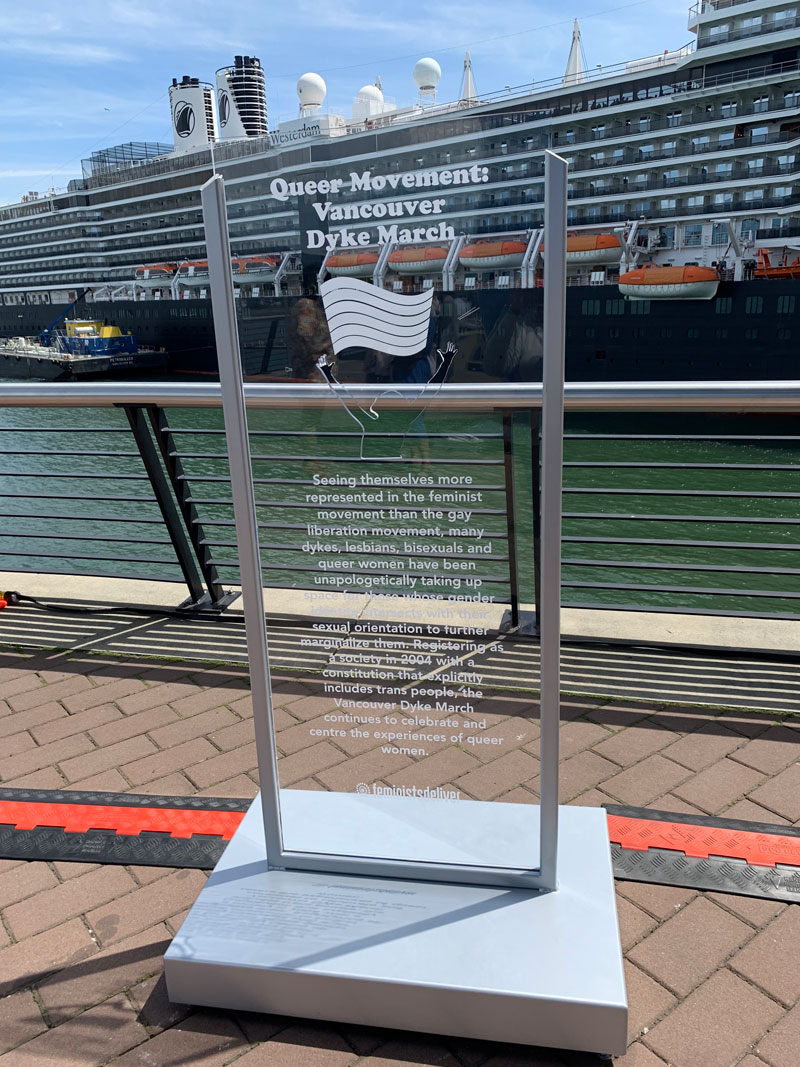Progressive
social change is happening at the grassroots in communities.
The Feminists Deliver Ripple Effect features 12 of those movements.
Come see this powerful installation now until June 6, 2019 at the Bon Voyage Plaza at the Vancouver Convention Centre.
Feminists Deliver: a grassroots collaboration
In 2019, a group of self-identified women, girls, non-binary people and the organizations that support convened in response to the Women Deliver Conference.
This led to an official grassroots collaboration that sought to seize the opportunity to showcase the urgent issues facing marginalized communities in BC.
By reinvigorating bonds, Feminists Deliver has become a strong united movement for change.
Idle No More: a peaceful revolution
Founded by three Indigenous women and one non-Indigenous woman in 2012, this movement continues to raise awareness for injustices against Indigenous persons, including missing and murdered Indigenous women, girls, and Two Spirit people.
Idle No More fights to assert inherent Indigenous sovereignty rights, and to protect water and land.
It’s approach is rooted in centuries-old Indigenous resistance.
Women’s Memorial March:
‘their spirits live within us’
The murder of a woman in January of 1992 on Powell Street in Vancouver’s Downtown Eastside ignited a neighbourhood into action.
Every February 14th since, women from the DTES organize and lead the Women’s Memorial March to honour the lives of missing and murdered Indigenous women, girls, and Two Spirit people, and to bring attention to the ways colonialism, racism, and misogyny perpetuate gender-based violence.
Indigenous Feminist Activism:
knowledge and resistance
Indigenous feminist activism has existed since time immemorial.
It has been at the forefront of the fight to decolonize Turtle Island.
Within this decolonizing movement, Indigenous feminist activists have also been fighting to dismantle colonial understandings of gender identity, sex, and sexuality that were imposed on communities through patriarchal laws like the Indian Act, and to reclaim and reconceive Indigenous teachings.
Justice for Sex Workers :
sex work IS work
Since the 1990’s, Sex workers and their allies have challenged laws, law enforcement, and stigma that perpetuate the marginalization of people engaging in sex work.
Activism by women, trans, Two Spirit, gender nonconforming, straight, gay, and lesbian sex workers have worked to resist the notion that sex work is inherently exploitative.
Their activism has resulted in reforms grounded in lived experience.
Reproductive Justice:
the fight continues
Feminist Activism in Canada has sought to make reproductive justice a reality for all people while highlighting the reality that the sexual and reproductive health and rights of people from many diverse communities are disproportionately affected by marginalization and oppression.
This activism led to the legalization of contraception, increased access to abortion in 1969, and the striking down of Canada’s anti-abortion laws as unconstitutional in 1988.
Hogan’s Alley:
revitalizing
the Black community
Hogan’s Alley was the centre of the first concentrated Black community in Vancouver.
In the early 1900s systemic anti-Black racism, framed as an urban renewal scheme, uprooted the predominantly Black neighbourhood.
Of the many attributes Nora Hendrix was known for, it was for her efforts to preserve the AME Fountain Chapel that cemented her as a pillar in the community.
A modular housing development has been constructed in Nora’s name.
Harm Reduction:
the fight for
drug user justice
Advancements in policy, healthcare, research, valuing lived experience as labour and peer-to-peer support are becoming mainstream discourse around drug use.
These actions can be directly attributed to the leadership of people living in Vancouver’s Downtown Eastside, many of them Indigenous women, sex workers, gender non-binary and Two Spirit people.
Rainbow Refugee:
immigrant & refugee
feminism in BC
Active since 2001, Rainbow Refugee Vancouver has supported and assisted LGBTQ and HIV positive asylum seekers, refugee claimants, and refugees in Canada.
Decriminalization of same sex activity in 1969 was and is not enough to protect the LGBTQ community in Canada.
Alongside services provided by Rainbow Refugee, what is needed is investing in cultural training, creating safer spaces, access to mental health facilities and increased advocacy.
Gender Based Violence:
access to justice
Anti-violence advocates, many of them survivors, have fought along multiple fault lines to eradicate gender-based violence.
They have provided emergency shelter, transition housing, and supportive services where resources have fallen far short, working tirelessly to undermine rape mythology and reform legal systems to work for survivors.
Black Lives Matter:
Vancouver
Founded in 2016, Black Lives Matter Vancouver is an intersectional activist movement that raises awareness and seeks to resit the racism and systemic anti-Black discrimination that is prevalent in society.
BLM Vancouver creates safer spaces for vulnerable persons by standing up against unnecessary police presence and teaching Black and Indigenous youth about their rights.
Queer Movement:
Vancouver Dyke March
Seeing themselves more represented in the feminist movement than the gay liberation movement, many dykes, lesbians, bisexuals, and queer women have been unapologetically taking up space for those whose gender identity intersects with their sexual orientation to further marginalize them.
Registering as a society in 2004 with a constitution that explicitly includes trans people, the Vancouver Dyke March continues to celebrate and centre the experiences of queer women.

